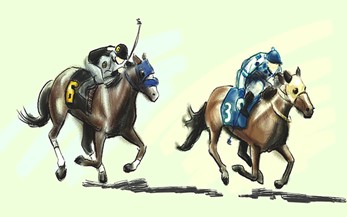A New Insight For a Brick Wall Ancestor
 My third great-grandfather, Daniel Sherman, seemingly dropped out of the sky into Kentucky in the 1820’s. I know nothing about his life before then. His place and date of birth, family members, and reason for settling in Kentucky all elude me.
My third great-grandfather, Daniel Sherman, seemingly dropped out of the sky into Kentucky in the 1820’s. I know nothing about his life before then. His place and date of birth, family members, and reason for settling in Kentucky all elude me.
He showed up in Morgan County, KY in the mid-1820’s. There he married Rebecca Howe Day on 4 September 1826. After that, his name appears regularly in the Kentucky records until 1863. That April, he and Rebecca sold a small plot of land, and Daniel disappeared from the record as mysteriously as he entered it.
U. S. census records for 1850 and 1860 tell me that Daniel was a blacksmith born around 1800 in either New York or Vermont. Why a guy from that region would relocate to Kentucky always puzzled me. Migration from the far north to the south does not match the usual migration patterns I have seen.
The other day, I mentioned this question to a fellow genealogist who has New York ancestors herself. She came up with a possible explanation. She reminded me that Kentucky is horse racing country, and that industry needs blacksmiths. Could that be why Daniel Sherman went to Kentucky?
My friend got quite interested in this line of inquiry and followed up by contacting the historical society in the last county where my ancestor lived—Madison County, KY. The President of the Society, Tom Black, replied with the following information:
All of Kentucky had lots of horses through the 19th century. Locally, most of them were work horses which also needed a blacksmith’s attention so he could have potentially been servicing them. We had no race horses of note that I am aware of and no local farms that had more than a handful. However, show horses have been a Madison County staple for a long time, and we have seen a great number that were competitive and a few that became champions. All that said, he would have been a busy man if working locally.
Perhaps Daniel followed an opportunity when he headed south. If he became a busy man working as a Kentucky blacksmith, he was fortunate to have four sons. They all learned the blacksmith trade and became working blacksmiths themselves. Some of Daniel’s grandsons followed that profession, too, until it faded away after World War I. Horse country provided them all with a means to make a living.